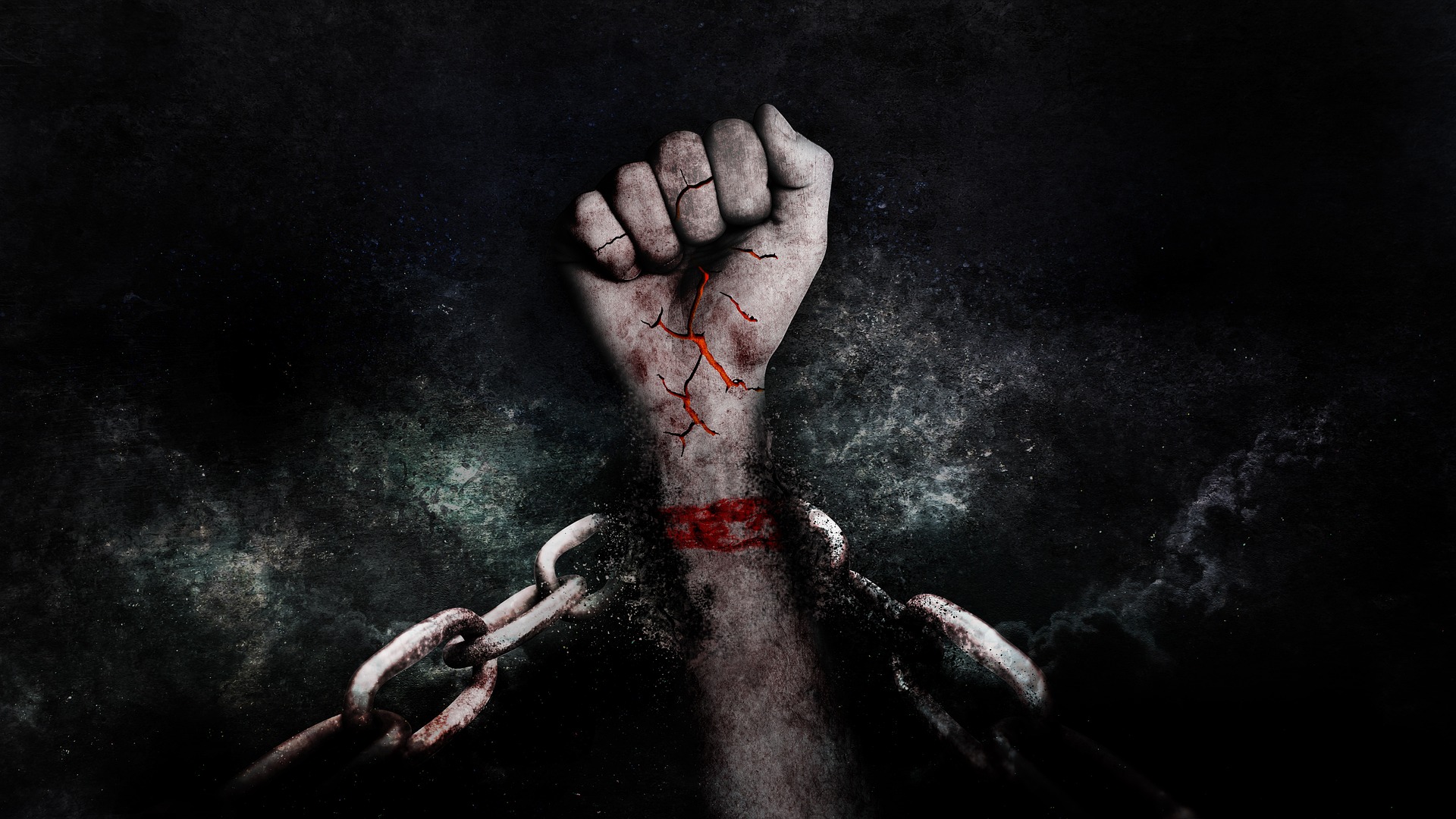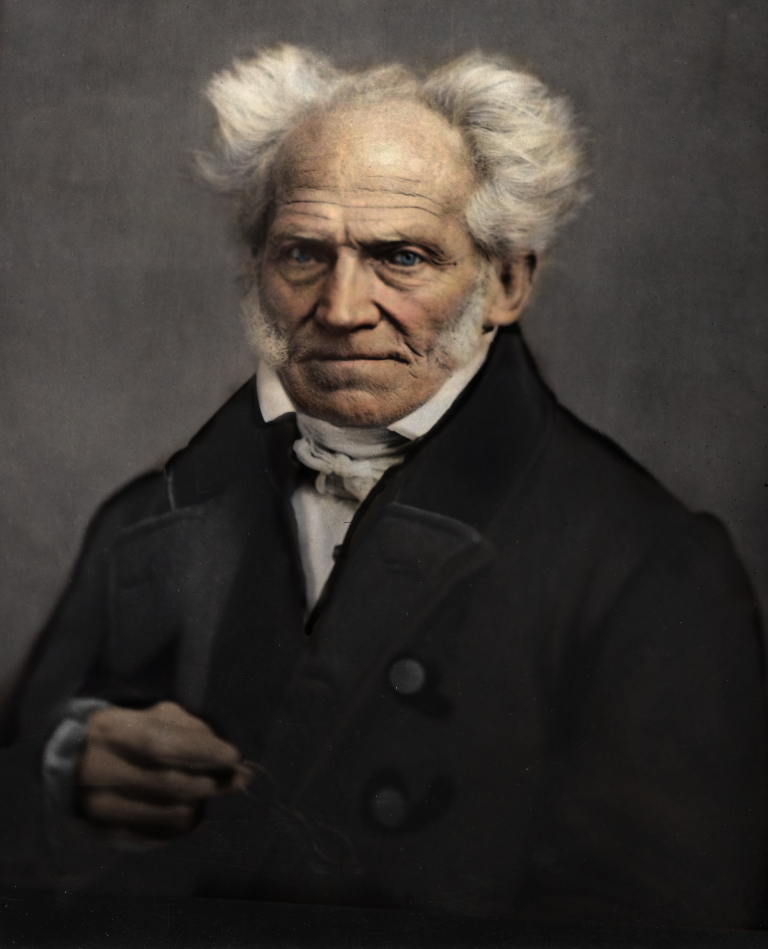
“Whoever fights monsters should see to it that in the process he does not become a monster. And if you gaze long enough into an abyss, the abyss will gaze back into you.”
Nietzsche’s famous aphorism is a warning about the dangers of engaging in a struggle against something or someone. According to Nietzsche, when we fight against monsters, whether literal or metaphorical, we risk becoming like them, adopting their viciousness and cruelty.
The first part of the quote, “Whoever fights monsters should see to it that in the process he does not become a monster,” suggests that the act of fighting against something or someone can change us. Nietzsche warns us to be careful not to become like the very thing we are fighting against, for doing so would mean losing ourselves and our humanity in the process.
The second part of the quote, “And if you gaze long enough into an abyss, the abyss will gaze back into you,” expands on this idea. Nietzsche is warning that the more we confront the darkness in the world, the more likely we are to be consumed by it. The abyss represents the darkness and evil that exists within the world, and the act of staring into it can be dangerous. Nietzsche suggests that the more we focus on the darkness, the more we risk becoming like it.
Nietzsche’s aphorism is a warning about the dangers of fighting against evil and darkness. He cautions us to be careful not to become like the very things we fight against, and to recognize the potential for darkness to consume us if we gaze too deeply into it.
Nietzsche’s quote is a cautionary statement about the dangers of engaging in a struggle against something or someone. The quote is often interpreted as a warning against the potential for individuals to become consumed by the very thing they are fighting against. In this article, we will explore the different interpretations of Nietzsche’s quote and what it means in the context of his philosophy.
Interpretations of Nietzsche’s Quote
There are several interpretations of Nietzsche’s quote, and its meaning can be applied to a variety of situations. Some interpretations of the quote include:
- The Dangers of Fighting Evil: Nietzsche’s quote warns that when we fight against evil or darkness, we risk becoming like the very thing we are fighting against. This can happen when we engage in acts of violence, or when we allow our anger and hatred to consume us.
- The Importance of Self-Awareness: Nietzsche’s quote also emphasizes the importance of self-awareness. It is only through being aware of our own thoughts and emotions that we can recognize when we are becoming like the very thing we are fighting against.
- The Power of the Human Mind: Finally, Nietzsche’s quote speaks to the power of the human mind. It suggests that the more we focus on darkness and evil, the more likely we are to become consumed by it. The quote highlights the importance of controlling our thoughts and focusing on positive things.
Nietzsche’s Philosophy
To fully understand the meaning of Nietzsche’s quote, it’s important to look at it in the context of his overall philosophy. Nietzsche was a philosopher who believed in the power of the individual to shape their own destiny. He believed that people should live life on their own terms and not be constrained by societal norms or traditions. Nietzsche’s philosophy was focused on the idea of self-improvement and personal growth. He believed that people should strive to become their best selves, and that this was only possible through a process of self-examination and introspection.
Nietzsche was also critical of traditional morality and religion. He believed that these institutions were used to control people and prevent them from achieving their full potential. Instead, he advocated for a new kind of morality that was based on the individual’s own values and beliefs. In the context of Nietzsche’s philosophy, his quote about monsters and the abyss takes on new meaning. It can be seen as a warning against allowing external forces to control us and limit our potential. Instead, Nietzsche encourages us to take control of our own thoughts and actions, and to be aware of the potential dangers of fighting against darkness and evil.
Practical Applications of Nietzsche’s Quote
While Nietzsche’s quote has a deep philosophical meaning, it can also be applied to our daily lives. Here are some practical applications of Nietzsche’s quote:
- Be Aware of Your Emotions: To avoid becoming like the very thing you are fighting against, it’s important to be aware of your own emotions. If you find yourself feeling angry, vengeful, or consumed by hatred, it’s time to take a step back and re-evaluate your actions.
- Focus on Positive Things: As Nietzsche suggests, the more we focus on darkness and evil, the more likely we are to become consumed by it. Instead, focus on positive things and the things you are grateful for in your life.
- Take Control of Your Thoughts: It’s important to take control of your own thoughts and actions, and not be swayed by external forces. This means being aware of the media and information that you consume, and taking the time to reflect on your own beliefs and values.
- Set Boundaries: When working to fight against injustice or evil, it’s important to set boundaries for yourself. This means knowing when to step back and take a break, and when to seek support from others.
- Practice Self-Care: Finally, it’s important to practice self-care when engaging in any kind of struggle or challenge. This means taking care of your physical and emotional health, and making time for activities that bring you joy and relaxation.
In conclusion, Nietzsche’s quote “Whoever fights monsters should see to it that in the process he does not become a monster. And if you gaze long enough into an abyss, the abyss will gaze back into you” is a powerful statement about the dangers of fighting against evil and darkness. It emphasizes the importance of self-awareness, focusing on positive things, taking control of our own thoughts and actions, setting boundaries, and practicing self-care. By following these principles, we can avoid becoming like the very thing we are fighting against and live a more fulfilling and meaningful life.


This is a gross misunderstanding of the abyss and the monsters within. The abyss is to be sought and explored in order to understand the world and one’s place within it. It isn’t for the faint of heart–Nietzsche describes his ideal reader as a monster himself, courageous and curious–presumably because the revelations it offers (of religion, politics, culture) will undo a shallow mind. But there is nothing in Nietzsche’s writing warning against “The Dangers of Fighting Evil.” His life was dedicated to fighting against falseness.
The aphorism is an existential challenge: are you satisfied with your shallow life? If you had to live it for eternity would you curse or thank the gods?
For those who would curse it, dive in, for the abyss holds your fate.
“He must have wings, who loves the abyss/ He must not stay on the cliff”
But Didn’t Nietzsche also warn us about the danger or becoming the thing that you fight against, hence looking into an abyss for long enough allows the abyss to look into you? Isn’t he warning us about a negative transformation in which we ‘evaluators of values,’ allow others to evaluate us and change our values without us even knowing it, isn’t this ‘evil,’ to Nietzsche who asks us to become our own evaluators of values. All the same thanks for posting, I appreciate that the language in this article could have been made more clear to distinguish it from conventional ideas of ‘good,’ and ‘evil.